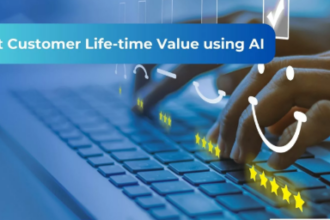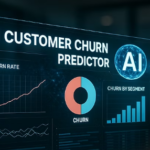In this article, I will focus on Customer Support Analytics and the AI tools that help in automating and analyzing data to provide useful insights.
These tools assist businesses in analyzing interactions and assessing goals, not to mention forecasting customer needs and performing predictive analysis.
AI-driven analytics in the corporate world now help businesses achieve operational efficiency, enhanced satisfaction rates, and improved customer relationships.
What is Customer Support?
Customer support is the assistance given to clients by a business to help them solve issues, respond to inquiries, and guarantee that they have a seamless experience with the company’s products or services.
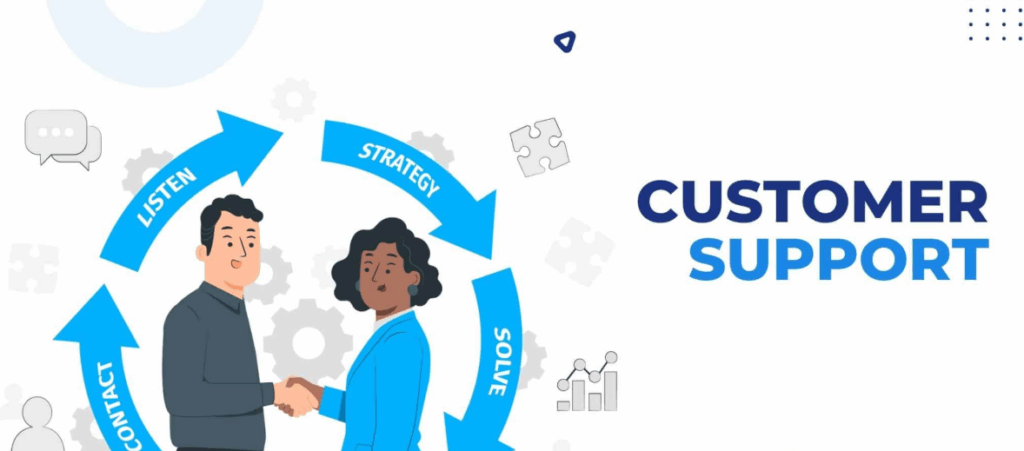
This assistance is rendered via phone calls, emails, live chats, or social media, and occurs before, during, and after a purchase. Accurate customer assistance builds trust and enhances customer satisfaction which, consequently, promotes loyalty over the long-term.
Businesses that aid with resolving issues improve relationships with the clients by strengthening the brand’s image, thereby enhancing the likelihood of saving and spending on future purchases.
How To Choose AI Tools for Customer Support Analytics
Consider these deciding factors in selecting AI systems for customer support analytics:
Define Business Goals – Determine if you need insights regarding response time, sentiment analysis, or customer satisfaction.
Integration Capability – Check if the tool integrates seamlessly with the existing CRM, helpdesk, and communication systems.
Data Accuracy – Look for systems with advanced natural language processing (NLP) and predictive analytics capabilities.
Scalability – Select systems that support an expanding volume of customer interactions as the business grows.
User-Friendly Dashboard – Emphasize streamlined reporting with real-time insights for enhanced, expedited decision-making.
Customization – Focus on business process automation by selecting systems with adjustable reporting and workflow customization.
Security & Compliance – Check for customer data protection under GDPR, HIPAA, or other relevant regulations.
Key Point & AI Tools for Customer Support Analytics List
| AI Tool | Key Point |
|---|---|
| Freshdesk (Freddy AI) | Provides AI-driven ticket routing, sentiment analysis, and automated responses. |
| Zendesk AI | Offers predictive analytics and intent detection to improve customer satisfaction. |
| Kapture CX | Customizable AI workflows with omnichannel analytics for enterprises. |
| Saufter Helpdesk | Focuses on automation, SLA tracking, and customer interaction insights. |
| Tidio AI | Uses conversational AI chatbots with sentiment tracking and analytics. |
| Custify | Specializes in customer success analytics with churn prediction features. |
| Balto AI | Real-time conversation guidance for support agents to improve call outcomes. |
| Nextiva AI | Integrates AI analytics with VoIP, CRM, and omnichannel communication. |
| Yuma AI | Automates repetitive tasks with AI-driven support ticket management. |
| Brainfish | AI-powered knowledge base with contextual search and predictive suggestions. |
1.Freshdesk (Freddy AI)
Freshdesk (Freddy AI) offers an advanced AI solution designed for customer support analytics and aids in optimizing engagement for businesses by converting unrefined data into usable insights. Its intelligent ticketing and real-time sentiment analysis features provide an unparalleled advantage by connecting customers to agents in the shortest time possible.
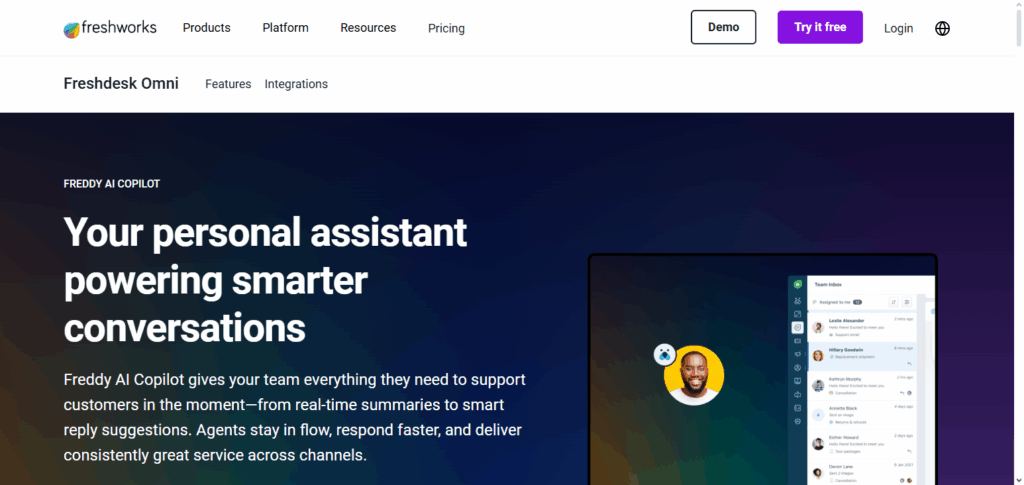
Freddy AI further analyzes support data, measuring reply efficiency and proactive customer issue resolution, as well as anticipating customers’ future needs. Through the application of automation and insightful analysis, Freshdesk increases customer satisfaction alongside the performance of the support team.
2.Zendesk AI
Zendesk AI is an advanced analytical tool for customer support services that aims to enhance decision-making using predictive insights. Its most outstanding capability is intent detection which processes customers’ questions in context and classifies them appropriately to expedite answers.
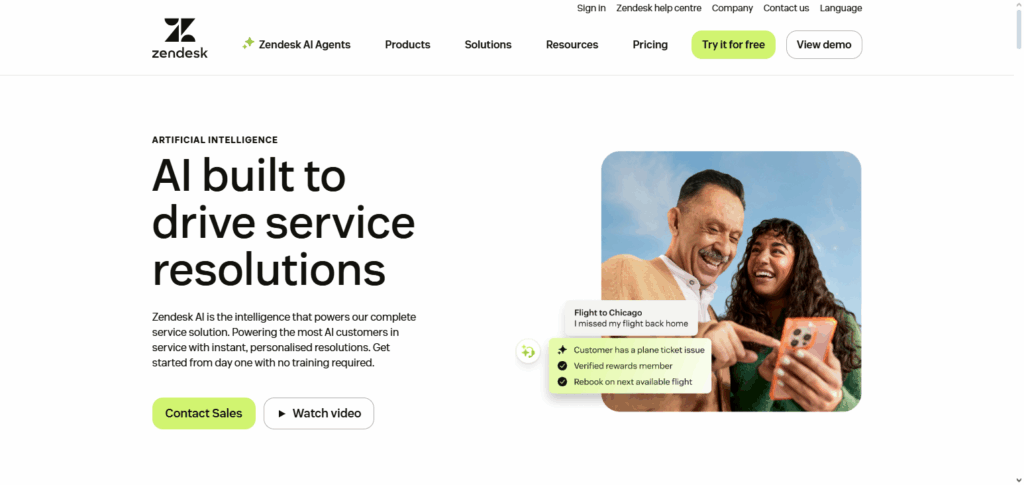
Forecasting customers’ needs and parsing out the main drivers for their satisfaction are predictive insights drawn from historical interactions. Zendesk AI proactively assists agents during the live interactions, which optimizes precision and speeds up the support process. This empowered abord assists businesses in improving operational efficiency and augmenting support even as they enhance personalization.
3.Kapture CX
Kapture CX is an advanced AI solution for customer support analytics that equips organizations with intelligence-driven insights from varied forms of communications. Its distinct feature of customizable AI workflows that adapt to different industry needs guarantees bespoke reporting and analysis.
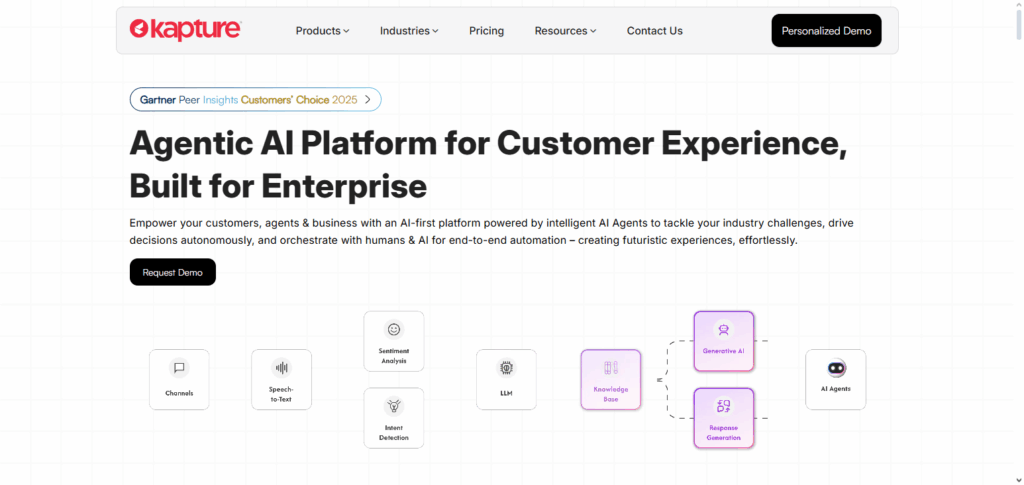
By integrating data from calls, chats, and emails, Kapture CX offers businesses a holistic perspective of customer interactions. This helps companies in diagnosing response improvement areas, optimizing service benchmarking, and evaluating overall service performance, thereby, automating data-driven response support strategies.
4.Saufter Helpdesk
Saufter Helpdesk is an advanced and multifunctional customer support AI tool designed for modern SLA automation and customer support analytics. Its distinct advantages stem from SLA performance analytics and intelligent process automation that assist teams with meeting the deadlines while keeping the quality.
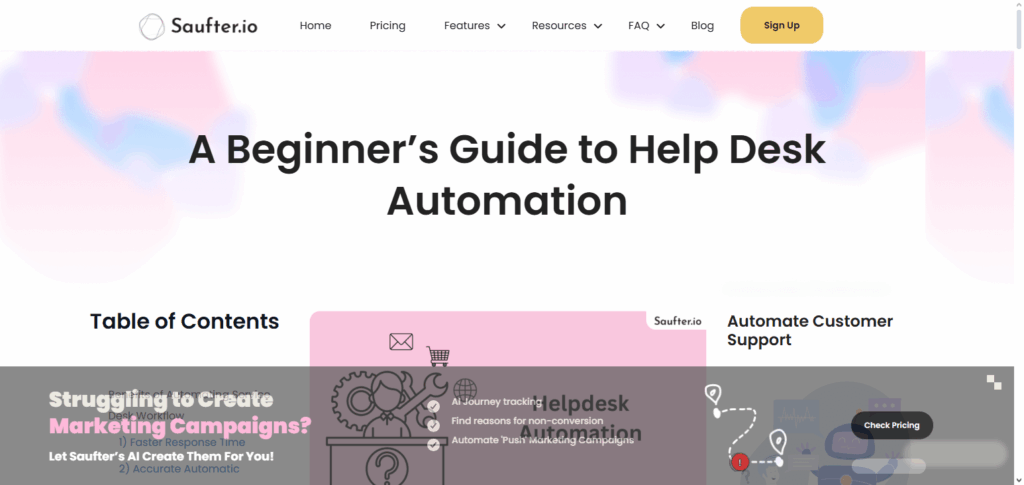
Saufter AI processes and evaluates customer communication across different contact points to analyze and evaluate with respect to timeliness, resolution, and personnel performance. Saufter Helpdesk performs advanced analytics with the help of AI and provides actionable recommendations which allow businesses to optimize support processes, increase efficiency, and improve uniformity in customer service.
5.Tidio AI
Tidio AI is an advanced AI-powered solution for customer service chat analytics that merges analytics with conversation-driven automation. Its unique feature is the ability to assess chatbots’ conversations for real-time customer sentiment and engagement analysis.
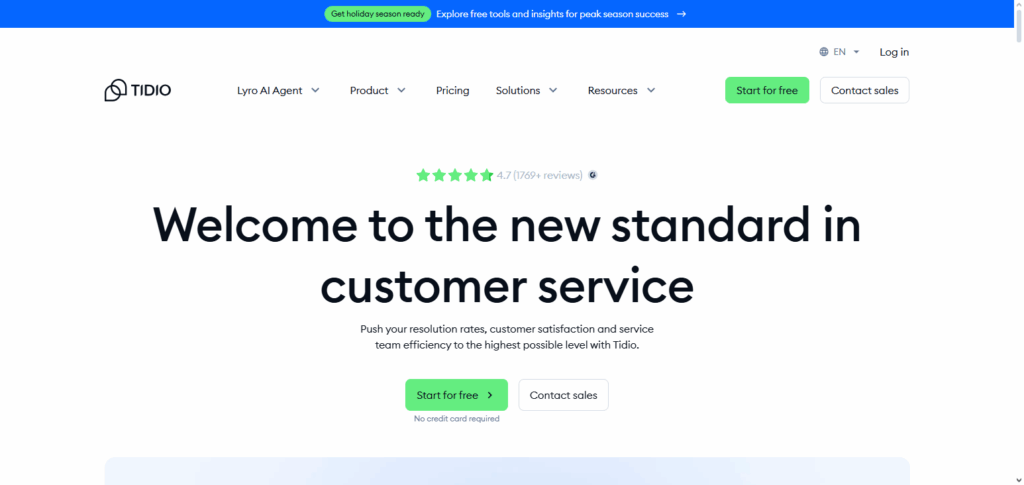
From data collected during chats and automated conversations, Tidio AI provides actionable intelligence to businesses, which aids in comprehending customer behavior and understanding persistent problems. Consequently, support teams can improve response strategies, expedite the resolution processes, and enhance overall customer satisfaction. Tidio AI proves to be a useful data-driven customer support solution.
6.Custify
Custify serves as an focused customer support analytics AI tool aimed at assisting in customer retention and overall customer success. It stands out for its sophisticated algorithm in churn prediction, enabling companies to pinpoint customers who are likely to disengage based on their behavior and usage patterns.
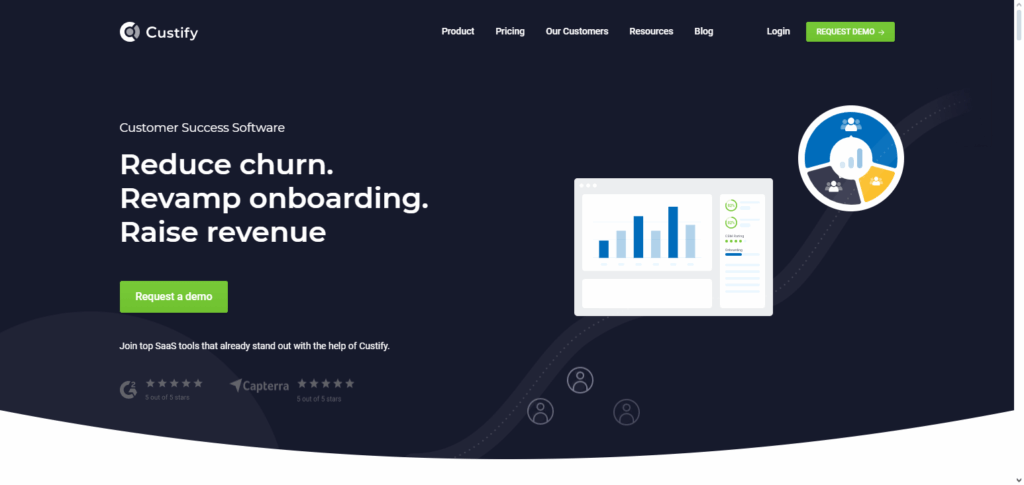
By tracking client health scores as well as their engagements with support, Custify offers critical engagement insights to fine-tune improvement strategies. This proactive issue avoidance aids in building enduring loyalty, thus resolving issues long before they escalate. This platform proves indispensable for businesses looking to manage customer relationships based on empirical data.
7.Balto AI
Balto AI is an AI tool that provides customer support and analytic solutions through real-time conversation analysis. Its key feature is assisting support personnel in the management of customer calls through real-time system prompts about the customer’s utterances, ensuring system compliance and accuracy, as well as desirable customer results.
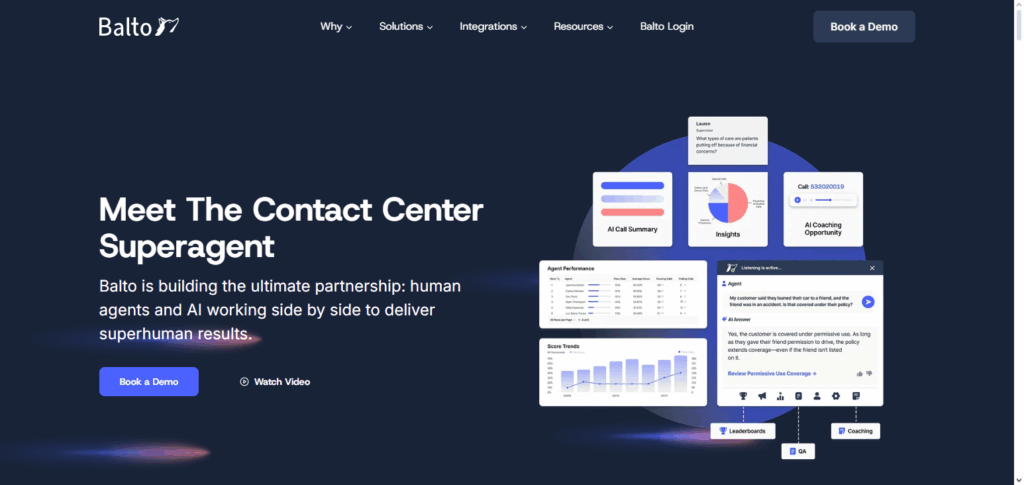
Balto’s analysis of customers’ speech and sentiments during the conversation provides real-time suggestions that make calls more beneficial and valuable. Balto’s real-time analysis of speech data equips teams with the information they need to enhance performance, optimize customer experience, and revise their support strategies with respect to performance data.
8.Nextiva AI
Nextiva AI is an all-in-one AI solution for customer support analytics which integrates communication data with intelligence. Its unique strength is in the combination of VoIP, CRM, and support through multiple channels in one platform which allows for holistic customer interaction tracking.
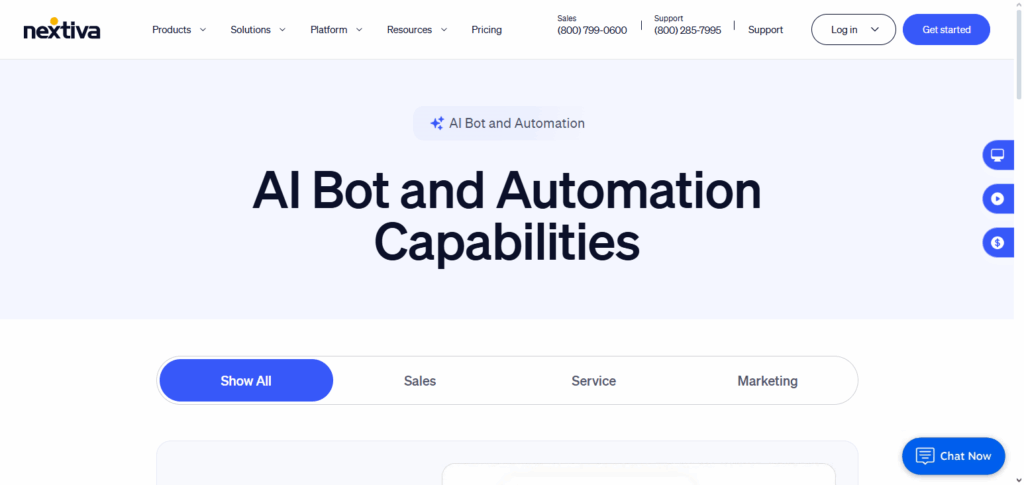
Through the analysis of calls, Nextiva AI provides useful analytics on service delivery and customer satisfaction which improves service efficiency. With this unified method, support teams are able to detect patterns and refine processes. They can also enhance service delivery to their clients through better, informed choices.
9.Yuma AI
Yuma AI is an innovative technology in the field of customer support analytics because it automates monotonous support tasks using intelligent automation. Its primary value proposition is in AI-powered ticketing systems where it sorts, queues, and distributes cases thanks to its context-aware urgency processing.
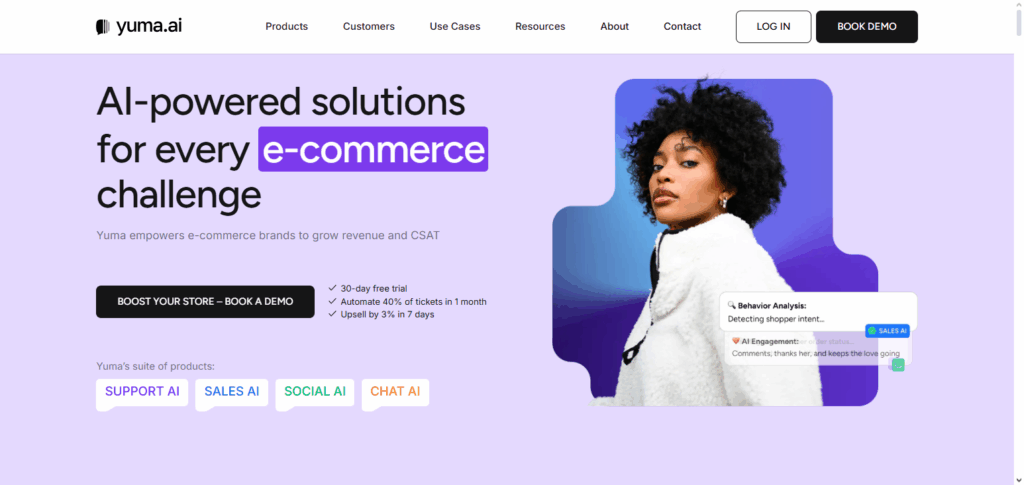
Yuma AI monitors ongoing customer support to understand customer behaviors and recurring issues to help teams with actionable insights. This enables improved operational efficiency while enhancing customer satisfaction through accelerated resolution times and improved, data-driven, support strategies.
10.Brainfish
Brainfish is an advanced artificial intelligence tool that analyzes customer support data and improves self-service systems through advanced knowledge management. Its intelligence is multifaceted, but most notable is its contextual search and predictive techniques that help customers access precise information effortlessly.
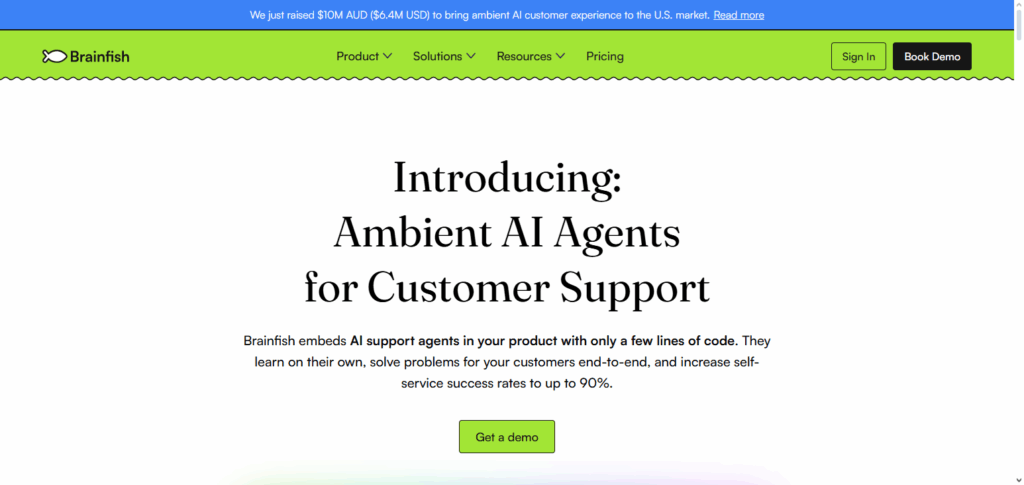
Additionally, by analyzing search queries, user interactions, and content utilization, Brainfish uncovers hidden opportunities within customer support. Organizations can enhance their knowledge management systems as well as decrease redundant queries, thus improving responsiveness and streamlining automated customer support services.
Pros & Cons AI Tools for Customer Support Analytics
| Pros | Cons |
|---|---|
| Provides deep data-driven insights for smarter decision-making | High setup and subscription costs for advanced tools |
| Automates repetitive tasks like ticket routing and categorization | Data privacy and compliance risks when handling sensitive information |
| Real-time monitoring of sentiment, response times, and issue trends | Accuracy depends heavily on quality and completeness of data |
| Delivers personalized support based on customer behavior | Requires training and adaptation for support teams |
| Scales easily to manage large volumes of queries across channels | Limited ability to capture human empathy in complex interactions |
| Reduces operational costs by lowering agent workload | May misinterpret emotional context or unique customer needs |
Conclusion
To summarize, AI tools for customer support analytics are increasingly becoming a necessity for organizations looking to automate, accelerate, and personalize service delivery. These tools help to improve organizational efficiency, identify trends and enhance satisfaction by turning system data and customer interactions into insights.
Although issues such as cost, data quality, limited empathy, and others pose challenges, the advantages AI analytics offer in today’s market far exceed the challenges, especially when properly planned for and strategically implemented.
AI analytics enable businesses to strengthen customer relationships, enhance operational efficiency, and outpace competitors in a market where superior service is increasingly becoming the hallmark.
FAQ
What are AI tools for customer support analytics?
AI tools for customer support analytics are software solutions that use artificial intelligence to analyze customer interactions, measure performance, and provide actionable insights to improve service quality.
How do these tools improve customer support?
They automate ticket management, track sentiment, predict customer needs, and deliver real-time insights, allowing faster and more accurate responses.
Are AI tools expensive to implement?
Costs vary by platform. While some enterprise solutions can be expensive, many providers offer scalable pricing models suitable for startups and mid-sized businesses.


